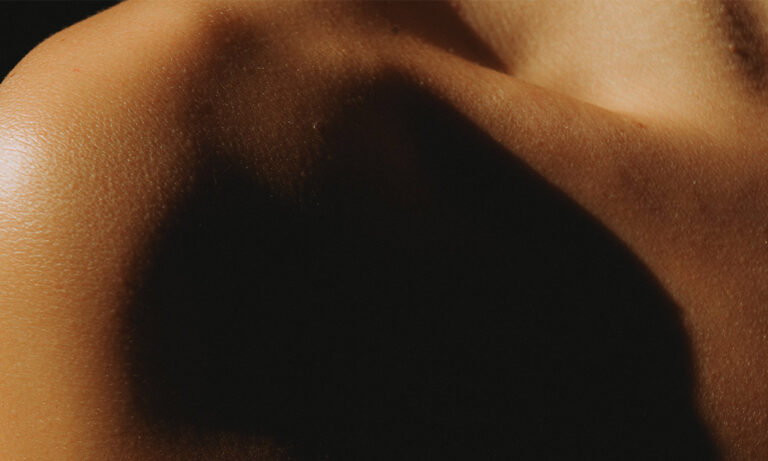‘We’re not here to judge your art’: It’s official, Tumblr is reintroducing nudity on the platform
For me (a gen Z netizen who practically spent all of her teens scrolling for moody and explicit content on the internet in order to escape the humdrum of the Disney channel) and so many others, Tumblr represented an entire youth movement. It was a nostalgic black hole, filled to the brim with dip dye hair tutorials, black and white faded phone case images, and a lot of The 1975 tour merch.
One of Tumblr’s most unique—and controversial—features was its acceptance and propagation of explicit content. Among the grunge aesthetics and bleeding flowers was a much saucier underbelly of the online platform—one that gave way to a wave of identity expression and experimentation.
As Paper noted in its analysis on the rise and fall of the ultra-personalised website, “everything that happened on the platform was an elaborate in-joke that served to infuriate outsiders and make those involved feel a part of something. It spawned its own absurdist, often seemingly nonsensical humour.”
The publication also recognised the sheer impact Tumblr had when it came to online discourse in regards to sexual content. It stated: “The ways in which Tumblr and sex interacted were diverse: Hentai and furry porn flourished, but so did screencaps of regular porn, erotic photos, and extended slash fanfiction. Sex workers, too, used the site to raise awareness around their work and to sell content.”
The adult content ban
This all came crashing to a firm halt in 2018, however, when Tumblr announced a site-wide adult content ban. The decision was met with immediate criticism, not only from the platform’s dutifully loyal community, but also from netizens everywhere who viewed the move as inherently contradictory to what Tumblr ultimately stood for: creative expression.
To summarise, the content ban, as explained by Tumblr itself to The Verge in December 2018, “include[d] photos, videos, and GIFs of human genitalia, female-presenting nipples, and any media involving sex acts, including illustrations. The exceptions include[d] nude classical statues and political protests that feature nudity.”
The aim of the ban was, of course, incredibly necessary in its purpose: to purge the site of child paedophilia and overtly sexually explicit content which could be harmful to users. However, it ultimately had a devastating blanket effect, silencing beloved blogs and users who were utilising the platform in a sex-positive and community-affirming way.
As Vox aptly put, “the site has long been plagued by an unfairly dismissive cultural reputation that reduces the entire vibrant platform to a vast repository of porn, and not much else.”
In fact, while data analysts have uncovered that, yes, there is a lot of porn on Tumblr, it’s coming from only a miniscule fraction—about a tenth of 1 per cent—of the site’s creators. On top of that, most of this form of content is originating from pornbots, automated accounts set up to generate NSFW content.
Rather than celebrating Tumblr for encouraging millennials and gen Z alike to explore social justice, LGBTQIA+ communities or feminism, the platform became known as something far more sinister.
The new policy had an instant impact. After the ban took effect, Tumblr lost almost 30 per cent of its page views, as reported by Mashable. The controversial move also massively impacted the website’s Google ranking. In November 2018—the month the ban was announced—Google ranked Tumblr at 100, or the “people popularity for the team.” However, by March 2019, Google listed interest in Tumblr at only 34.
When the ban first went into action, one Reddit user shared: “Tons of artists that I follow are leaving Tumblr because of this. And these aren’t just like 14-year-old artists, but actual people that work in illustration and animation industries. This automated system is SO BAD—definitely designed to fail. My feed is flooded with people posting the dumbest shit as flagged, and are telling people to follow their Instagram and Twitters instead.”
“This move will kill the artist movement on Tumblr, something that was dwindling over the past couple years anyway. Real shame, because it was actually a really great place to view content,” they continued.
The general consensus online was that the users who were most harmed were creatives or artists who produced NSFW content, while those who utilised the site for harmful or predatory reasons faced lesser consequences and simply moved to other nefarious sites to consume illegal media.
Nudity is back on Tumblr
Things, however, have now taken a turn. After a rather frosty and lacklustre four years, Tumblr has officially doubled back on their approach to sex-positive and nude content on the platform.
On 1 November 2022, the platform updated its community guidelines and released a statement, reading: “We now welcome a broader range of expression, creativity, and art on Tumblr, including content depicting the human form (yes, that includes the naked human form). So, even if your creations contain nudity, mature subject matter, or sexual themes, you can now share them on Tumblr using the appropriate Community Label. Visual depictions of sexually explicit acts remain off-limits on Tumblr.”
This new move will hopefully allow for greater self-expression among artists and users on Tumblr, while still banning harmful and overtly explicit sexual content.
It should also be noted that since resident “free speech absolutist” Elon Musk bought Twitter—aka the internet’s sounding board—masses of users have exited the site. A number of celebrities have left the platform after reportedly having seen a massive increase in hate speech. According to The Guardian, many ‘tweeters’ are also worried about losing the Twitter community they hold close. That being said, they also stated that they would consider looking for different options if need be.
So, with Twitter losing users at a rapid speed, are we on the verge of witnessing a triumphant Tumblr renaissance? Only time will tell.






